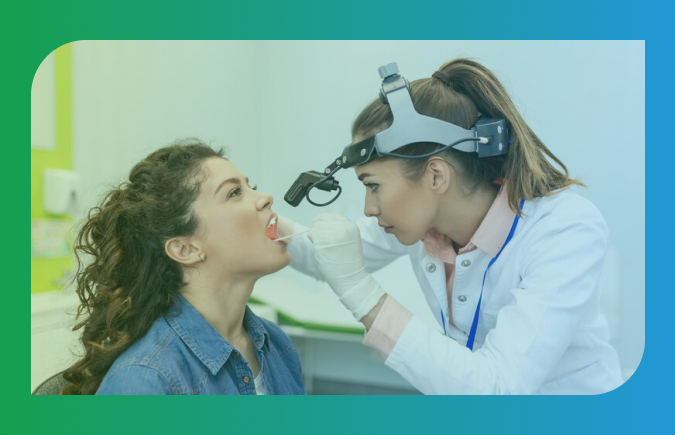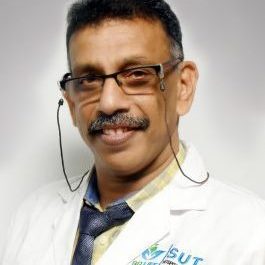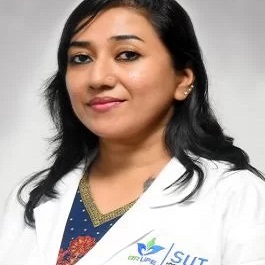
Laryngology
Laryngology deals with diseases of larynx (voice box). Larynx is important for breathing and swallowing as well as voice, patients may be referred to Laryngology specialist. Many problems and diseases of the larynx do NOT require any form of surgery, and common symptoms, such as hoarseness, are often treated by a speech and language therapy. They’re the undisputed experts when it comes to your larynx. SUT Hospital has expertise Laryngologists at diagnosing and treating vocal cord injuries and injuries affecting larynx related to surgeries. They can diagnose your condition and deliver treatment. They can also coordinate care with other specialists to ensure you receive holistic care. If you’re a person whose career depends on your vocal health — like a public speaker, actor, singer, teacher or salesperson — it’s an excellent idea to have a laryngologist on your care team.
We mainly deals with..
Benign (noncancerous) vocal cord growths.
Cancerous or precancerous growths.
Infectious or inflammatory conditions.
Autoimmune diseases.
Neurological (brain and nervous system) conditions.
Airway conditions.
Vocal cord motion abnormalities.
If you have conditions such as:
- Dysphagia - Difficulty swallowing.
- Laryngeal cancer - A cancer that starts in your voice box.
- Laryngeal papillomatosis - A chronic (long-lasting) infection.
- Laryngeal stenosis - The narrowing of the part of your airway containing your larynx.
- Laryngitis - Inflammation (swelling) of your voice box.
- Laryngopharyngeal reflux (LPR) - Occurs when stomach acid flows upward into your esophagus and, eventually, your throat.
- Spasmodic dysphonia - A rare nervous system condition where muscles in your larynx tighten or spasm without your control when you talk.
- Vocal cord haemorrhage - When one or more blood vessels on your vocal cords break and the soft tissues inside fill with blood.
- Vocal cord lesions - It include nodules, polyps and cysts. These noncancerous growths can form on one or both vocal cords.
- Vocal cord dysfunction (VCD) - It involves your vocal cords closing when you need them to be open to breathe.
- Vocal cord paralysis - It happens when one or both vocal cords don’t open or close properly.
- Voice disorders - It include various conditions and symptoms that affect your larynx or vocal cords.
Your primary care provider may refer you to a laryngologist. You may reach out to a laryngologist if you’re having symptoms, like hoarseness, that don’t improve. We have daily OP as well as Emergency services for Laryngology.
Doctors

Consultant Dept of Laryngology

Consultant Dept of Laryngology

Consultant Dept of ENT & Laryngology






